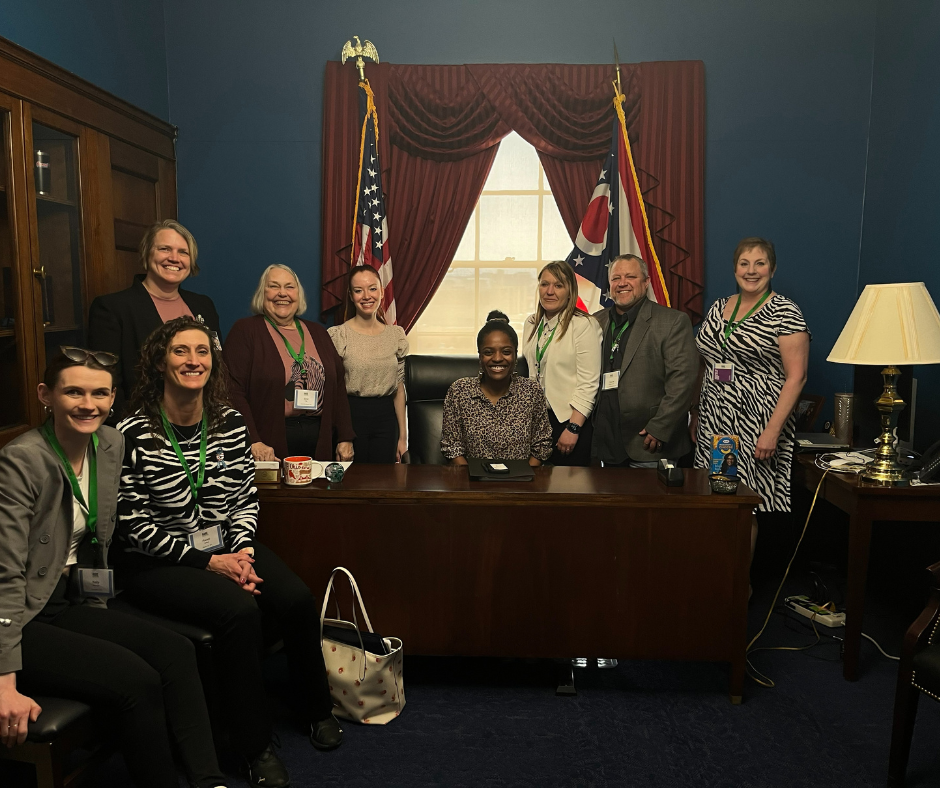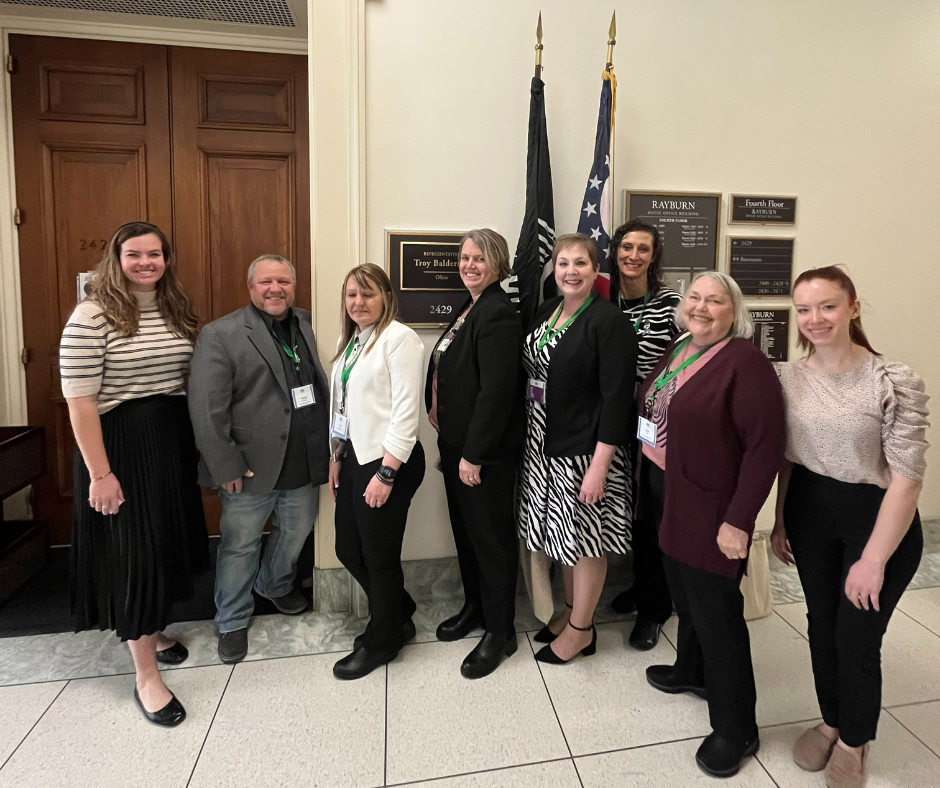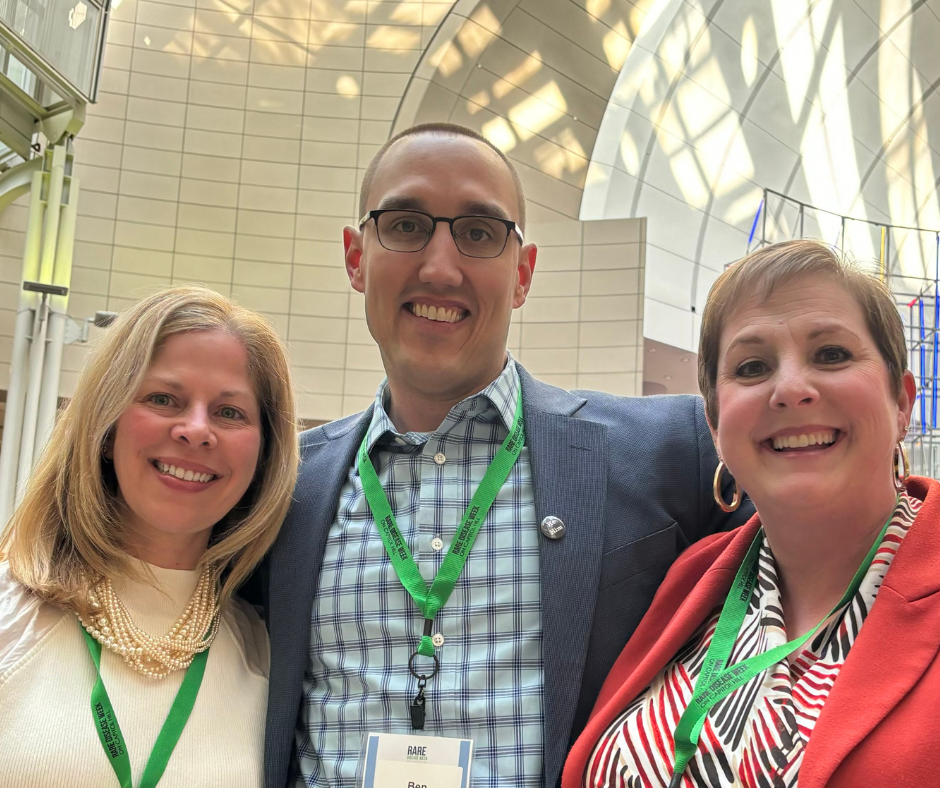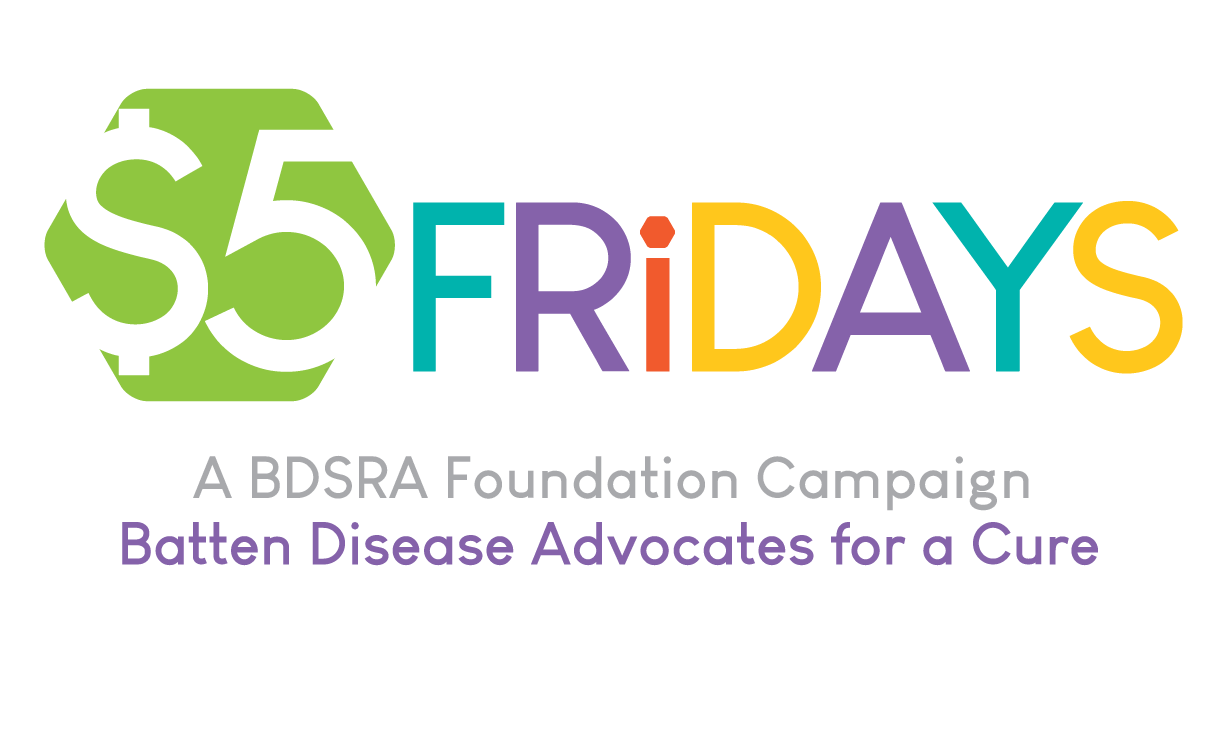Provide 1-2 main takeaways from this event.
One of the main takeaways from Rare Disease Week on Capitol Hill, for me, was the energy created from all the connections made with others. I was introduced to so many new people — those in roles like mine, patients and family members, industry representatives, and many others who were all interested in change. I was inspired by a rare mother and son who traveled from Alaska to advocate through his artwork and on Capitol Hill. I want to see the day when family representatives and our whole team can come together to advocate for Batten disease in Washington, D.C. More importantly, I also felt emboldened by those across the U.S. and afar who were cheering me on and advocating from their own homes through the sign-on letter we created.
The message was loud and clear by all in attendance — and I do mean all — that what we’re currently doing isn’t working for the rare community. From the legislative meetings to the congressional hearing I witnessed on rare disease, thought leaders were challenging each other to think bigger and more thoroughly. I had the opportunity to talk with Dr. Nicole Verdun, Super Office Director, CBER, FDA, in person at the end of the NIH day. She met with (BDSRA Head of Research & Medical Affairs) Dr. Ineka Whiteman and me in January to talk about what BDSRA can do to help facilitate change. She remembered our conversation and said she is very hopeful for the future of rare disease treatments and wants to continue to have conversations about the path forward. It was a great way to end a week of presentations and conversations.
What were legislative asks this year? What key pieces of legislation should the Batten community be aware of?
There were many asks this year, and most can be found by going to the EveryLife Foundation’s website here. Because we worked in small groups, we took turns asking for specific legislation. I spoke most on HR 4758 Accelerating Kids’ Access to Care Act. This legislation cuts the red tape for clinicians who provide care for children from other states. We know that many Batten families travel extensively to get the care they need from specialists in other areas. Most rare disease communities encounter the same issue. This bill was introduced in July of 2023 and currently has 72 co-sponsors, 10 of which were garnered Rare Disease Week. To follow this and other initiatives, you can sign up at Congress.gov. This proposed bill was discussed by the committee on Thursday, February 29. Now we wait for the committee’s report and hope that it gets scheduled for the floor of the House or the Senate. This may be our next letter campaign!
What new information did you learn, and how can that information help benefit/educate the Batten community?
I learned so many things while in Washington, D.C. Although they knew we were coming, I don’t know of anyone who met with their elected representatives. Everyone I spoke with met with a staff member. In my experience, the staff members were very knowledgeable about health matters and eager to take the information to their leaders; however, it was disappointing and gave even more reason that letters and phone calls should be made. This is why I am most grateful to everyone who wrote letters to their representatives. Although we didn’t get to meet with them either, we were all advocating for Batten disease, which is a big benefit to the community.


Amy met with staff members of the offices of Ohio House Representatives Emilia Sykes (left) and Troy Balderson (right) during Rare Disease Week on Capitol Hill.
I was surprised at how scripted the hearing on rare disease was from the testimony to the questions and answers. Knowing this affirms my belief that our collective voices are needed to educate the leaders in the room. Who is giving them the scripts? Who is most educated about the legislation being introduced, and how are they getting their information? Our testimony of personal experience is the most impactful, factual data they could have, and we need to advocate for our Batten community — the families, the researchers who need funding, the clinicians who want to help across state lines, and even the industry partners who need a stronger path to approval.
Who did you have conversations with? What was the primary theme of your conversations with fellow attendees?
I had conversations with staff from the EveryLife/RDLA team, and their former Executive Director, Julia Jenkins. She offered support anytime it’s needed. I met with leaders in other rare disease patient advocacy groups to learn about new legislation in development, and I plan to share that with the community as it is changing. I talked with Ben Forred about opportunities with CoRDS at Sanford Research, and how that might help our community to synchronize our information. I spoke with an industry representative whose company focuses on gene therapy and told him I knew of a few good products for sale. And, the last person I met in person before leaving D.C. was Dr. Nicole Verdun from the FDA. From other rare disease advocates to congressional staffers to the FDA, everyone I met agreed that changes need to be made when it comes to the development of treatments and cures for rare diseases. There seemed to be a true spirit of collaboration rather than bureaucracy.

Amy pictured alongside Ben Forred of CoRDs (middle) and Jennifer VanHoutan (left), a bereaved Batten mother and Batten advocate.
How is Batten disease specifically viewed by attendees, organizers, and legislators at an event like this? Were there many attendees who were familiar with this disease, or did you have to educate those you spoke with?
There were very few people I spoke with who were familiar with Batten disease. I had the opportunity to educate and advocate for our families every time I spoke to new people. Many people understand how Alzheimer’s, ALS, or even other better-known lysosomal storage disorders affect a person. No one has a pleasant reaction when using those examples to describe Batten to them. Sharing our families’ struggles was familiar to many but unlike so many others. Advocating for Batten was very empowering because I believe the more people understand, the more they will be inspired to act.


